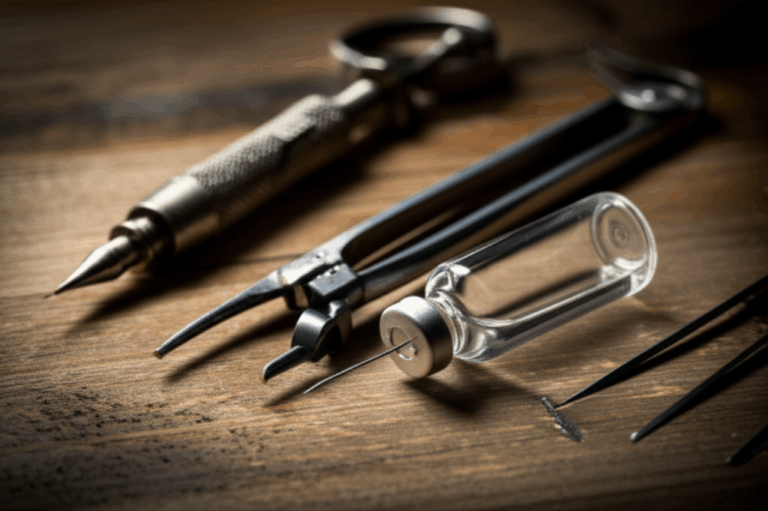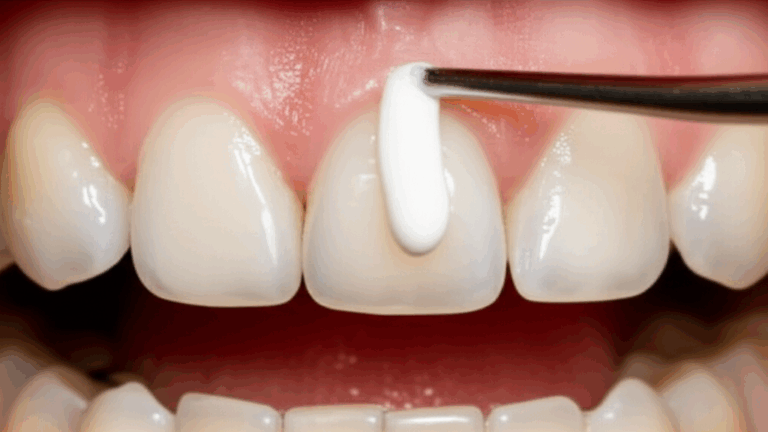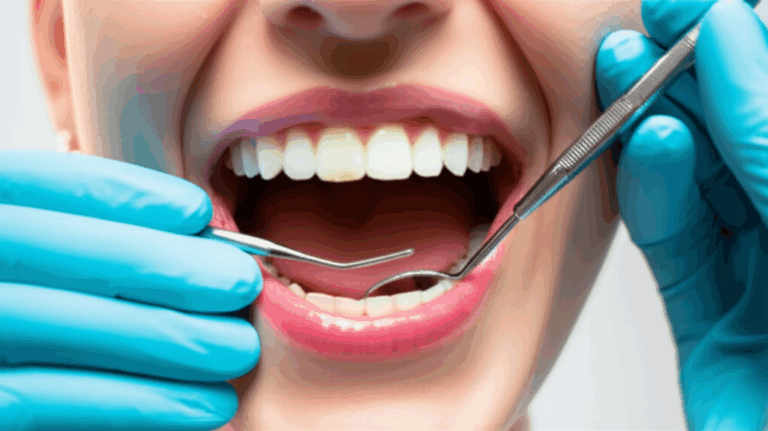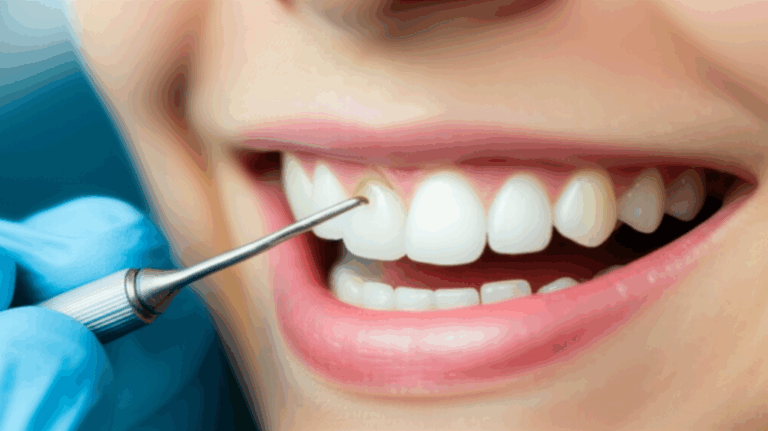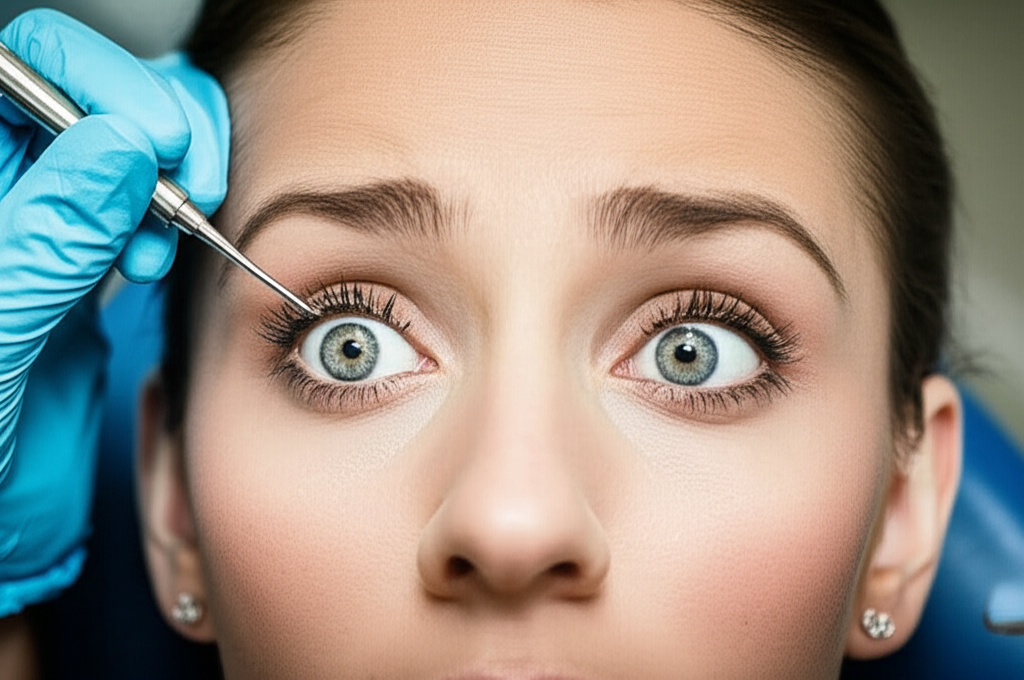
Why Am I So Scared of the Dentist?
Understanding and Overcoming Dental Fear for a Healthier, Happier Smile
You’re not alone if your stomach turns at the thought of a dental visit. That feeling in your gut, sweaty hands, maybe a night without sleep — these things happen to lots of people. In fact, dental anxiety and even dental phobia affect millions, from kids to adults. If you’ve ever asked, “Why am I so scared of the dentist?” or felt shy about it, you’re in the right place. Let’s break down where dental fear comes from, what you can do about it, and why looking after your teeth doesn’t have to be such a scary thing.
In This Article
What We’ll Cover:
- How Common is Dental Fear?
- Why Are People (Like Me) Scared of the Dentist?
- What Happens If You Avoid Dental Visits?
- Solutions: How You Can Start Overcoming Dental Fear
- When Should You Seek Professional Support?
- Simple, Empowering Takeaways
How Common Is Dental Fear? (Is My Fear Normal?)
Let’s start with what you might be thinking: “Is something wrong with me because I’m so scared of the dentist?”
Not at all. Studies show dental anxiety is really common:
- About 20-45% of adults say they are nervous about dental visits.
- 10-20% are so scared (odontophobia) that they avoid the dentist, unless there’s an emergency.
- About 1 in 7 adults in the world skip dental checkups because they are afraid.
So, if you don’t want to make an appointment or get sweaty sitting in the waiting room, you’re not the only one.
Dental fear can be different for everyone. It can be just a little worry, or it can cause real panic. And it doesn’t always get better with age.
The main thing to keep in mind? Dental fear is real, normal, and something you can deal with — not something you should hide.
Why Are People (Like Me) Scared of the Dentist?
Every fear comes from somewhere. Maybe you had a scary visit when you were a kid, or maybe you’re afraid of needles, the loud drill, or just feeling stuck in the chair. Sometimes, it’s all of these things. Let’s look at the main reasons people get anxious.
A. Bad Experiences in the Past
Imagine being young and sitting in a huge chair, and someone is poking around your mouth and not telling you what’s happening.
For many people, dental fear starts with a bad or painful visit when they were young. Maybe you felt pain, got poked by a needle, had a dentist who ignored your feelings, or just felt helpless. These memories can stick.
You might have:
- Seen a dentist who didn’t care about your pain or worries.
- Felt pain during an appointment when you shouldn’t have.
- Felt ashamed because someone laughed at your teeth.
Over time, your mind starts to think “dentist = danger.” You’re not just being scared for no reason — your mind and body remember.
B. Fear of Pain
Let’s be real — nobody wants pain in their mouth. For many, dental fear is really just fear of hurting:
- Fear of needles in the gums
- The loud, scary “drill” and waiting for the pain
- Afraid of things hurting even at a checkup
Even hearing “root canal” or “tooth pulled” can be too much, especially if you had pain before.
C. Feeling Out of Control
Ever felt like you couldn’t move or talk when someone’s hands were in your mouth?
Lots of people feel weak in the dental chair:
- You’re laid back with a light in your face and tools over you.
- You can’t talk — that matters a lot if you’re nervous!
- You feel like you can’t make them stop if it hurts.
This can make even checkups hard to handle.
D. Embarrassment and Being Judged
Are you worried about your teeth, gums, or breath?
Some people think if they go to the dentist, they’ll get a lecture or be judged for “bad teeth.”
- Shame about how your teeth or gums look
- Fear of being told off or made to feel bad
- Worry about “bad breath”
No one wants to feel bad in the chair. The truth is, dentists see all sorts of mouths — they’re there to help, not judge.
E. Sensory Triggers: Noises, Smells, Sights
The dental office can feel like a lot:
- That certain smell when you walk in (cleaner, chemicals)
- The high-pitched sound of the drill
- White walls, bright lights, and lots of metal tools
For some people, these things are enough to bring up stress, or remind them of bad times at the dentist.
F. Gag Reflex and Choking Worries
You’re lying back, trying to breathe, while someone puts instruments and tubes in your mouth. If you gag easily, this can be very scary.
- Afraid you’ll gag and can’t breathe
- Afraid you’ll choke on water or stuff in your mouth
- Worried you might throw up or do something embarrassing
You are not the only one. Dentists know lots of people have this concern.
G. Anxiety or Other Fears
If you struggle with other anxiety problems (like being nervous all the time, panic attacks, or PTSD), going to the dentist can make things feel worse.
- Claustrophobia (not liking tight spaces)
- Fear of needles
- Social anxiety (worried about what others think)
Sometimes it’s not even the dentist, but just all the worry.
H. Stories and Movies
Just hearing someone else’s bad story or seeing something on TV can make you more scared.
Movies and jokes about “the mean dentist” don’t make things any better!
What Happens If You Avoid Dental Visits?
Why Facing Your Fears Helps Your Health
It can be tempting to stay away from the dentist if it makes you nervous. But putting it off can turn small problems into big ones.
- Teeth Get Worse: Cavities, gum problems, and even tooth loss are more likely if you skip appointments.
- Whole Body Health: Your mouth is connected to your whole body. Mouth infections can hurt your heart, lungs, and other health.
- More Pain and Emergencies: People who avoid the dentist often end up in pain and need bigger (and more painful) treatments because they waited too long.
- Day-to-Day Problems: Mouth pain, trouble eating, feeling bad about your smile, not wanting to go out — these can all come from not getting care.
Think of it this way: skipping oil changes makes your car break down. Going to the dentist is like a tune-up for your mouth.
How to Start Overcoming Dental Fear
Easy Ways to Make Your Next Visit Better
There’s no magic trick, but there are real ways to help you get through it — and maybe even make your next visit feel okay.
1. Talk Openly With Your Dentist
Can talking really help? Yes, a lot. Most fears get smaller when you feel like someone is listening and cares.
- Tell your dentist you feel nervous before they even start.
- Share what worries you most (like pain, needles, loud noises, not being able to stop).
- Work out a “stop” sign with your dentist (like raising your hand). It gives you control.
- Ask your dentist to tell you what they’re doing before they do it.
These days, most dentists want to be kind, not mean. You’re their patient, not a project.
2. Relaxation and Distraction
You can help yourself feel better with these tips:
Try this:
- Deep breathing: Slow, steady breaths to calm your nerves and muscles.
- Bring music: Headphones with tunes, a podcast, or meditation can help.
- Picture something nice: Think about your favorite place (beach, woods, etc.).
- Stay in the moment: Notice your breath, your body in the chair, the music.
Some dental offices have things like TVs, blankets, or even friendly dogs to make it feel nicer.
3. Sedation: Calming Your Nerves
If your dental fear is strong, you can ask about calming medicine.
- Laughing gas: You breathe this in, and it helps you relax — goes away fast.
- Pills: Taken before the visit, these make you drowsy and less aware.
- IV sedation: Medicine in your vein for stronger relaxation.
- Full sleep (general anesthesia): Used for really bad fear or big dental jobs.
Your dentist will tell you what’s best for you.
4. Find a Kind Dentist
If other dentists made you nervous before, look for one who helps people like you.
- Search for offices that use words like “gentle” or “kind” in their ads.
- Read reviews from nervous patients.
- Ask for a first visit just to meet — no work done.
- Kids’ dentists often know a lot about helping with anxiety. Some regular dentists do too.
Some specialty labs, like china dental lab, support new tools and options that might help your visit go better.
5. Try Therapy or Counseling
If your fear is severe or comes from trauma, therapy may help.
- CBT (talk therapy): This teaches you how to think differently about dental care.
- Hypnotherapy: Helps some people get deeply relaxed.
- Exposure therapy: Goes step by step, starting small, to get used to the dentist.
If you feel stuck, talk to your doctor or dentist about this. Sometimes you have to help both your mind and your teeth.
What You Can Do Right Now (Easy Tips and Small Steps)
You don’t have to fix it all at once. Here are some simple things to try:
At Home:
- Watch videos about dental work from trusted groups. Knowing what happens can help.
- Practice breathing or meditation to settle your nerves.
- Give yourself a treat just for booking or going to an appointment.
When Scheduling:
- Pick a time when you feel calm or have less going on.
- Tell the front desk you get nervous. Many will help.
- Ask if you can see the office before your first real visit.
At the Office:
- Bring a friend or family member with you.
- Wear comfy clothes and maybe bring something soothing (like a soft sweater or stress ball).
- If you gag easily, tell your dentist. They have tricks and special tools that can help — sometimes using tools made by a digital dental lab.
When to Seek More Help: Is Dental Fear Stopping You?
When should you get extra help for dental anxiety?
- If you keep canceling or skipping appointments — even when you know you need them
- If your fear causes panic or keeps you up at night
- If you have other struggles, like PTSD or always feeling nervous, and can’t handle the dentist by yourself
- If tooth or gum problems are hurting your life
A therapist who knows how to help with fears can work together with a friendly dentist. This team can change things for you.
Are You a Good Fit for Dental Anxiety Help?
There isn’t just one answer for everyone. Here’s who gets the most from each choice:
Home Coping Tips
- Best for: Light to medium dental fear, if you can relax just with breathing, music, or other simple things
- Not great if: You get full-blown panic or never go to the dentist
Sedation
- Best for: Medium or strong dental fear, if you gag easily, are scared of pain or needles, need longer or tricky work
- Not for: Some health problems, or if you want to avoid medicine unless you must
Special Dental Offices
- Good for: Anyone who’s had a bad time before, feels unheard, or really just wants someone to care
- Also nice for: Kids, people with disabilities, or anyone worried about “being judged”
Therapy
- Best for: Very strong fear, real trauma in your past, or if the dentist AND other things make you anxious
- Try this if: Nothing else worked, or you fear all doctor visits, not just dental
Simple Conclusions: A Healthy Smile Starts Here
Let’s go over what we talked about:
Main Points:
- Dental fear is common. You are not alone, and it is not “silly.”
- It comes from bad experiences, fear of pain, feeling helpless, shame, or loud noises and smells.
- If you skip the dentist, your teeth (and overall health) get worse.
- There are ways to get help — from honest talks to relaxation, calming medicine, and seeing a therapist.
- A dentist who cares won’t judge your fear.
What To Do Now:
Remember, fear might be along for the ride at your next dental visit, but it doesn’t have to be in control. You deserve a healthy, happy smile — and you can get there with the right help.
Quick FAQ on Dental Fear
Q: Is it normal to be scared of the dentist?
A: Yes! Lots of people get nervous about going to the dentist.
Q: Will my dentist make me feel bad for waiting too long?
A: No. Dentists see all kinds of teeth and understand fear. They just want to help you get healthy again.
Q: What if I gag easily?
A: Tell your dentist. They have tips and special tools to work with this — like angled tools or breathing ideas. Some offices use custom devices from a dental lab for retainers.
Q: Are calming medicines safe?
A: For most people, yes — as long as they’re given by a trained dentist. Tell them your health and medicines.
Q: Can therapy help with really strong dental fear?
A: Yes! Talking therapies can help many people get over their fear and feel better about their health.
Further Reading
Want to learn about gentle dental options or easier treatments? These articles can help:
- What is Sedation Dentistry? (American Dental Association)
- Digital dentistry: Can new technology ease dental fear?
- How to Choose the Right Dental Appliance
Remember: The hardest part is getting started — but taking that step matters most. If you’re ready for a healthier, happier smile, reach out to a dentist and take that first brave step. You’re not alone — and you can do it.

